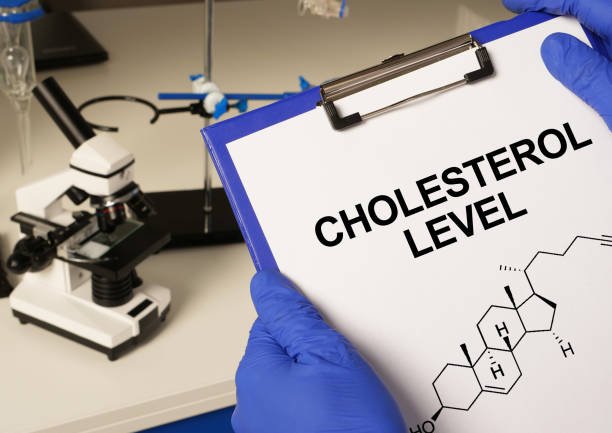Sometimes, high cholesterol isn’t about your food choices, exercise routine, or supplements. It’s about what you inherited. In our clinic, we often see individuals with perfect labs in every other category, but one stubborn marker, LDL cholesterol, remains elevated. If cholesterol levels stay high despite targeted lifestyle changes, it’s a sign we need to look deeper into your genetics.
Conditions like familial hypercholesterolemia (FH) or elevated Lp(a) can increase heart disease risk even if everything else looks perfect. These are genetic conditions, not something you caused.
What Is Familial Hypercholesterolemia (FH)?
Familial hypercholesterolemia is a genetic disorder that disrupts the body’s ability to remove LDL (bad) cholesterol efficiently. Instead of properly recycling cholesterol, the liver allows it to linger in the bloodstream, leading to high levels, even in individuals who eat well and lead an active lifestyle.
With FH:
- Cholesterol builds up from a young age.
- The risk of heart disease increases significantly.
- Symptoms may be silent until something serious occurs.

It’s estimated that 1 in 250 people have FH, but most don’t even know it.
Symptoms Of Genetic High Cholesterol
How do you know if this could be you? Look for these signs:
- You’ve been told your LDL cholesterol is high, even on a clean diet.
- One or both parents had heart attacks or strokes at a young age (before 55 in men or 65 in women).
- You’ve tried medication, but your cholesterol barely moves.
- Your cholesterol is high, and you have normal triglycerides and blood sugar.
- You have visible signs like cholesterol bumps on your tendons or skin.
These signs don’t confirm FH, but they do point to a genetic high cholesterol risk that should be investigated.
Functional Tests We Use to Identify Genetic Cholesterol Risk
In functional and integrative medicine, we don’t rely on standard panels alone. Here’s what we test to dig deeper:
- ApoB: Measures the number of cholesterol-carrying particles, not just the cholesterol itself. More accurate for assessing risk than LDL-C alone.
- Lp(a): A genetically inherited type of lipoprotein that’s resistant to diet changes and strongly linked to heart attack and stroke risk.
- ApoE Genotype: Reveals how your body metabolizes fat and cholesterol, and how it might affect your brain and heart.
- Genetic testing for LDL: Helps identify FH directly and guide care for your family, too.
- Inflammatory markers like hsCRP, homocysteine, and ferritin are used to evaluate overall plaque and cardiovascular risk.
These labs allow us to see the full picture, not just the numbers.
Why Early Detection Is Life-Saving
The most dangerous part of genetic high cholesterol is how silently it builds. Many people don’t know they have it until a cardiac event strikes. But with early testing and targeted care, we can prevent those outcomes.

Early detection allows us to:
- Start preventive strategies before plaque builds up.
- Monitor cardiovascular markers closely.
- Support the liver’s natural clearance pathways.
- Personalize your lifestyle, nutrition, and supplements for your genes, not someone else’s plan.
The sooner you understand your cholesterol blueprint, the better we can protect your heart for the long haul.
Our Functional Medicine Approach: From Testing to Treatment
At Kairos Integrative Primary Care, we believe in test-based, personalized care, not generic protocols.. If we suspect genetic high cholesterol, we’ll run targeted labs and explore family history.

Here’s how we do it at Kairos:
If You Have the ApoE4 Gene:
If your genes show you carry ApoE4, your body may not handle saturated fat well. That means foods like butter, fatty meat, or coconut oil can raise your LDL cholesterol and increase long-term risk.
In this case, we:
- Cut back on saturated fat
- Focus on heart-healthy fats like olive oil and avocado
- Add antioxidants to protect your brain and reduce inflammation
If insulin resistance or inflammation is a factor:
When labs show signs of insulin resistance or systemic inflammation, we rebalance blood sugar using fiber-rich vegetables, low-glycemic whole foods, and strategic meal timing. We also support mitochondria and liver detox pathways. Omega-3 fatty acids from fish oil or algae are often introduced to calm inflammation and support lipid metabolism.
If your ApoB or Lp(a) is Higher:
When your labs show high levels of ApoB or Lp(a), we know your body is making more harmful cholesterol particles. In these cases, we use anti-inflammatory foods and supplements. Instead of defaulting to statins, we consider all available options and build a plan that supports your long-term health without unnecessary side effects
Your Genes Might Hold the Answer
If your cholesterol is still high no matter how healthy you eat, it might not be your fault, it could be in your DNA.
At Kairos Integrative Care, Lola, one of our Board-Certified Nurse Practitioners, uses advanced testing to find out if genetics like ApoE or familial cholesterol are part of your story. We work with patients in Houston, Sugar Land, and nearby areas, including zip codes 77046 and 77478.
Let’s stop guessing and start testing. Book your visit today!




